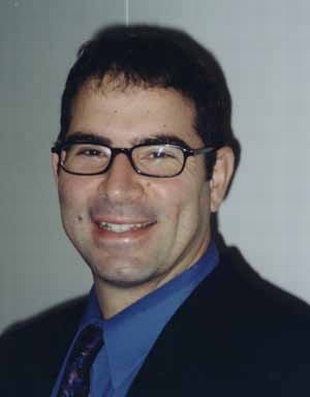
Publisher:
Bonnie King
CONTACT:
Newsroom@Salem-news.com
Advertising:
Adsales@Salem-news.com

~Truth~
~Justice~
~Peace~
TJP
Apr-05-2007 15:29

 TweetFollow @OregonNews
TweetFollow @OregonNews
Legislators Hear it From a Former Addict: Gambling Treatment Works
Op-Ed by: Jeff MarottaThis guest opinion is by Jeff Marotta, problem gambling services manager in the Oregon Department of Human Services.
 Jeff Marotta Photo courtesy: State of Oregon |
(SALEM) - The scene was an afternoon public hearing this spring before a committee of the Oregon Legislature. The 50-ish man at the witness table was articulate and was dressed professionally. But his personal story of battling a gambling problem was one legislative committees don't often hear.
"I wasn't a person who was stealing your car stereos," he told the committee, "but that's where I was headed. Through treatment I got the tools necessary so I could get on my feet."
Today he is among the more than 80 percent of Oregonians for whom free, confidential treatment for a gambling addiction has been successful, meaning that six months later they either are gambling less or not at all.
On any given day approximately 1,300 Oregonians are in treatment for gambling disorders, some of the estimated 75,000 of our neighbors who are believed to have a current serious problem with gambling. It's a safety net paid for by the Oregon Lottery, and the sad fact is that most people who would benefit -- remember, it's free and it works -- don't use it.
Oregon's free treatment for gambling addiction, which typically has a value of approximately $1,200, is recognized nationally as a model for its effectiveness.
Another Oregonian, who says she hadn't been a gambler, remembers she began watching a friend gamble $40 to $60 on video poker during her lunch hours. The former non-gambler, a religious person who describes herself as "conservative," became interested and then hooked, before seeing a television commercial urging treatment. She says she got into treatment, which showed her how to channel her interests into other activities. "Thankfully, I also have a good job and a supportive family," she says.
But suppose you are married to a problem gambler who refuses to seek treatment. Help is still available. Getting into counseling will help you understand that you are not alone, you are not to blame, and will show the gambler that accepting outside assistance is OK.
Although total abstinence is the best answer for many problem gamblers, it isn't a requirement of Oregon's treatment program. For some people, it's enough to convert their gambling from spending harmful amounts of time and money into an occasional recreational activity.
To get into treatment, one need only call the toll-free helpline: 1-877-2-STOP-NOW (1-877-278-6766). In some instances, three-way calling may put you into immediate contact with a treatment program. In every case, you can be in treatment within hours or days.
One woman says she gave her husband an ultimatum to call the helpline after he gambled away $50,000. Without treatment, she says, "we wouldn't be married, there's no doubt in my mind." Another woman, whose husband incurred $120,000 in sports-gambling debt, says, "It not only saved our marriage but it also helped me become stronger."
Treatment really does work. There are many reasons to try it. Perhaps the best was summed up by the former problem gambler who told his story to lawmakers in Salem:
"My life today is wonderful," he said.
Jeff Marotta is problem gambling services manager in the Oregon Department of Human Services. He can be contacted at Jeffrey.j.marotta@state.or.us.
Articles for April 4, 2007 | Articles for April 5, 2007 | Articles for April 6, 2007





Quick Links
DINING
Willamette UniversityGoudy Commons Cafe
Dine on the Queen
Willamette Queen Sternwheeler
MUST SEE SALEM
Oregon Capitol ToursCapitol History Gateway
Willamette River Ride
Willamette Queen Sternwheeler
Historic Home Tours:
Deepwood Museum
The Bush House
Gaiety Hollow Garden
AUCTIONS - APPRAISALS
Auction Masters & AppraisalsCONSTRUCTION SERVICES
Roofing and ContractingSheridan, Ore.
ONLINE SHOPPING
Special Occasion DressesAdvertise with Salem-News
Contact:AdSales@Salem-News.com
Terms of Service | Privacy Policy
All comments and messages are approved by people and self promotional links or unacceptable comments are denied.
[Return to Top]
©2025 Salem-News.com. All opinions expressed in this article are those of the author and do not necessarily reflect those of Salem-News.com.